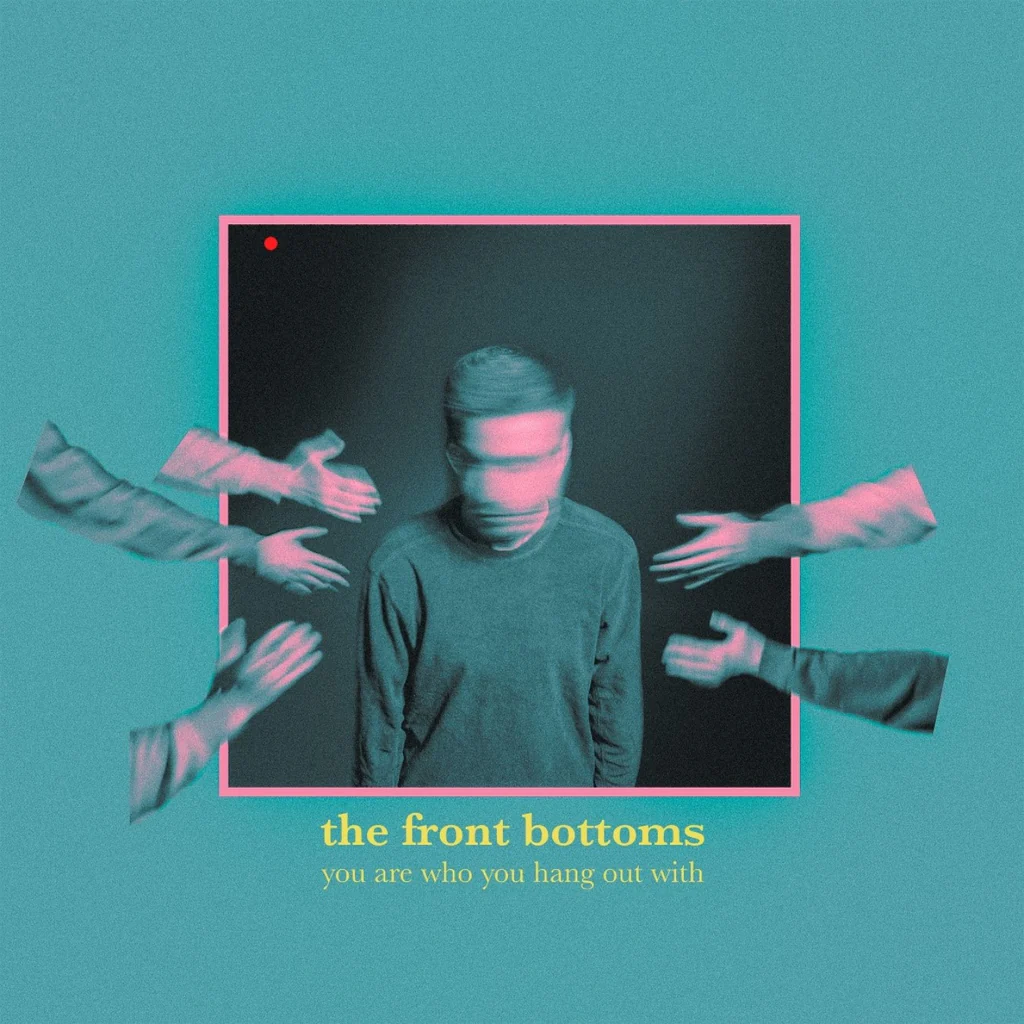 Fans of The Front Bottoms are firmly divided into two camps. There are those who believe that the duo from New Jersey were at their finest when they were indie wallflowers, writing streams of consciousness in the margins of their notebooks as if they were Michael Stipe circa 1985.
Fans of The Front Bottoms are firmly divided into two camps. There are those who believe that the duo from New Jersey were at their finest when they were indie wallflowers, writing streams of consciousness in the margins of their notebooks as if they were Michael Stipe circa 1985.
On the other side of the fence are supporters who believe that the only constant in this world is change. Like all bands, The Front Bottoms can grow, evolve and use modern production methods while keeping the essence of their sound as appealing as ever. ‘You Are Who You Hang Out With’, the band’s eighth release, attempts to be the record that bridges the critical divide. With free-flowing lyrics and only a reasonable amount of production to interfere with their gawky-outsider vibe, this album will either be seen as a compromise that no one likes or a tremendous success.
Frontman Brian Sella has become a lot wiser since The Front Bottoms released ‘In Sickness & In Flames’, leading us to wonder what happened during the pandemic to break his candy heart into shards. “Why don’t you put your boxing gloves on,” pleads Sella on ‘Punching Bag’, “and punch your punching bag?”. Is he offering himself as a sacrifice to the gods of trauma-dumping, or accepting that can he can never heal the one he loves? It’s intellectually intriguing lyrical puzzles like this which make The Front Bottoms appeal to the head as well as the heart. ‘You Are Who You Hang Out With’ is a come-of-age album, a culmination of a path out of insecurity and into adulthood. The snark on ‘Not Joking’ is biting, a comeback to someone who’s dismissed the band’s performance. While songs designed to give a middle finger to an imagined antagonist can sometimes be a touch cringey, this one adds uses string sections to turn the sarcasm into a cinematic revenge sequence.
With Sella’s newly acquired adult mindset comes more than a little nostalgia. It feels as though they’ve revisited their old neighbourhood, or even the earlier parts of their back catalogue, and can now view what they see fondly rather than critically. The fairground rose-tinted glasses he wore when writing ‘Fake Gold’ enable him to see incidents as simple as writing your name in cement with joy, as he does in the autotune-heavy ‘Brick’. They have always had the skill of making intangible emotions, the kind that have a single word in other languages but none in English, into musical tapestries. Trying to figure out what feelings their songs evoke and what that tightening in your chest means is part of the beauty.
This is a very polished album. It shines like it’s been buffed with musical beeswax, and the addition of so many additional instruments and layers has created a richer, more nuanced sound than was present on their previous releases. This might alienate the hardcore fans who fell in love with The Front Bottoms’ scuffed authenticity, and they could see this album as the first step in a move to become a budget version of The National. While one could accuse the band of an obsession with strings and autotune though, this album is a natural evolution from their anxious starting point. They’ve grown as people since 2006 and, while their lyrics and style are still as baffling as ever, their sound has advanced too.
For any other band, this album, packed with autobiographical vignettes and illustrated with nineties guitar, would be career-defining, but for long-time fans of The Front Bottoms it might feel unsatisfying. The quiet dignity in previous singles like ‘Twin Size Mattress’ is lacking, but no one can expect a band this introspective to remain static. The Front Bottoms are still very much worthy of devotion.
KATE ALLVEY
